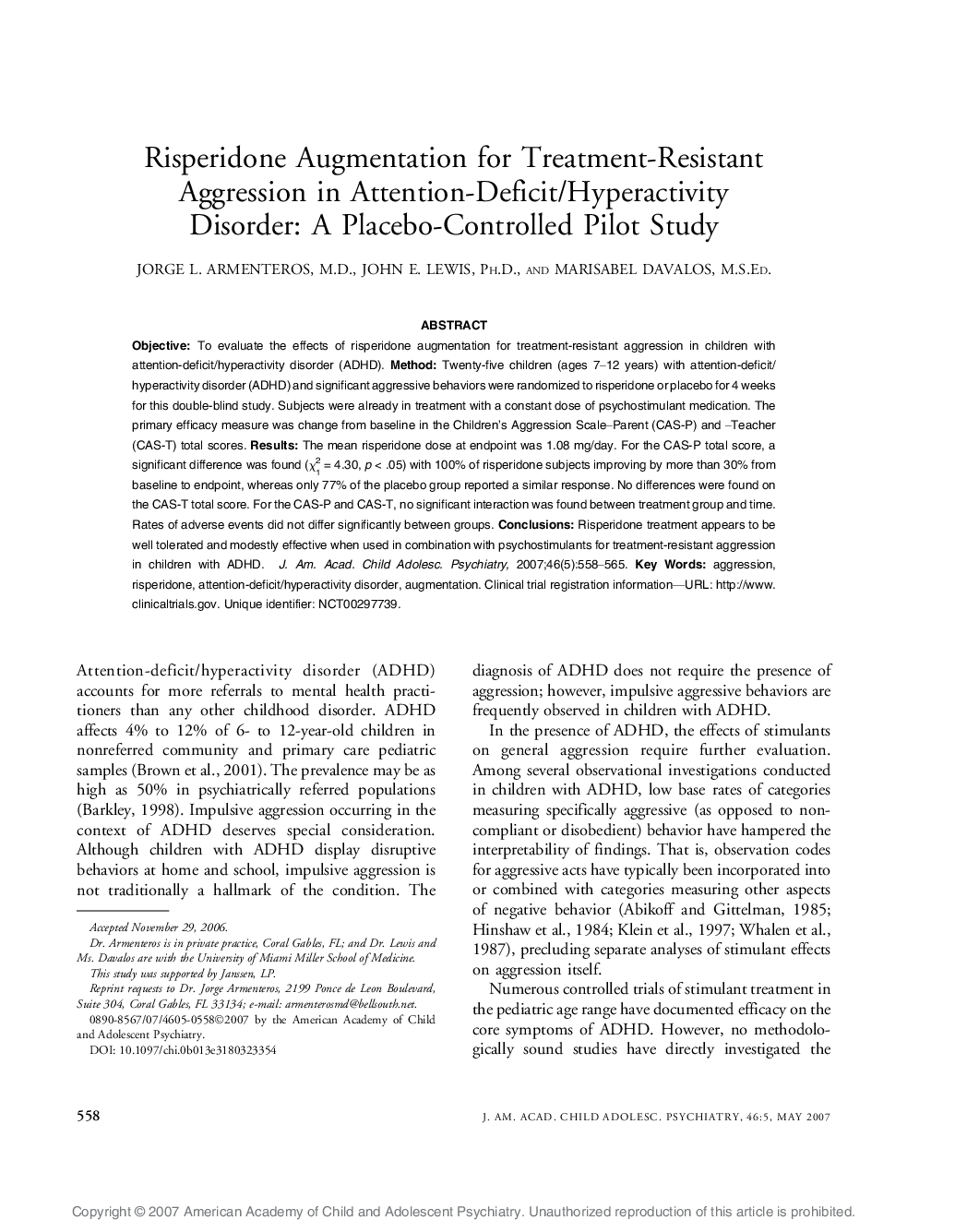| Article ID | Journal | Published Year | Pages | File Type |
|---|---|---|---|---|
| 325765 | Journal of the American Academy of Child & Adolescent Psychiatry | 2007 | 8 Pages |
ABSTRACTObjective:To evaluate the effects of risperidone augmentation for treatment-resistant aggression in children with attention-deficit/hyperactivity disorder (ADHD).Method:Twenty-five children (ages 7-12 years) with attention-deficit/hyperactivity disorder (ADHD) and significant aggressive behaviors were randomized to risperidone or placebo for 4 weeks for this double-blind study. Subjects were already in treatment with a constant dose of psychostimulant medication. The primary efficacy measure was change from baseline in the Children's Aggression Scale-Parent (CAS-P) and -Teacher (CAS-T) total scores.Results:The mean risperidone dose at endpoint was 1.08 mg/day. For the CAS-P total score, a significant difference was found (χ21 = 4.30, p < .05) with 100% of risperidone subjects improving by more than 30% from baseline to endpoint, whereas only 77% of the placebo group reported a similar response. No differences were found on the CAS-T total score. For the CAS-P and CAS-T, no significant interaction was found between treatment group and time. Rates of adverse events did not differ significantly between groups.Conclusions:Risperidone treatment appears to be well tolerated and modestly effective when used in combination with psychostimulants for treatment-resistant aggression in children with ADHD.
